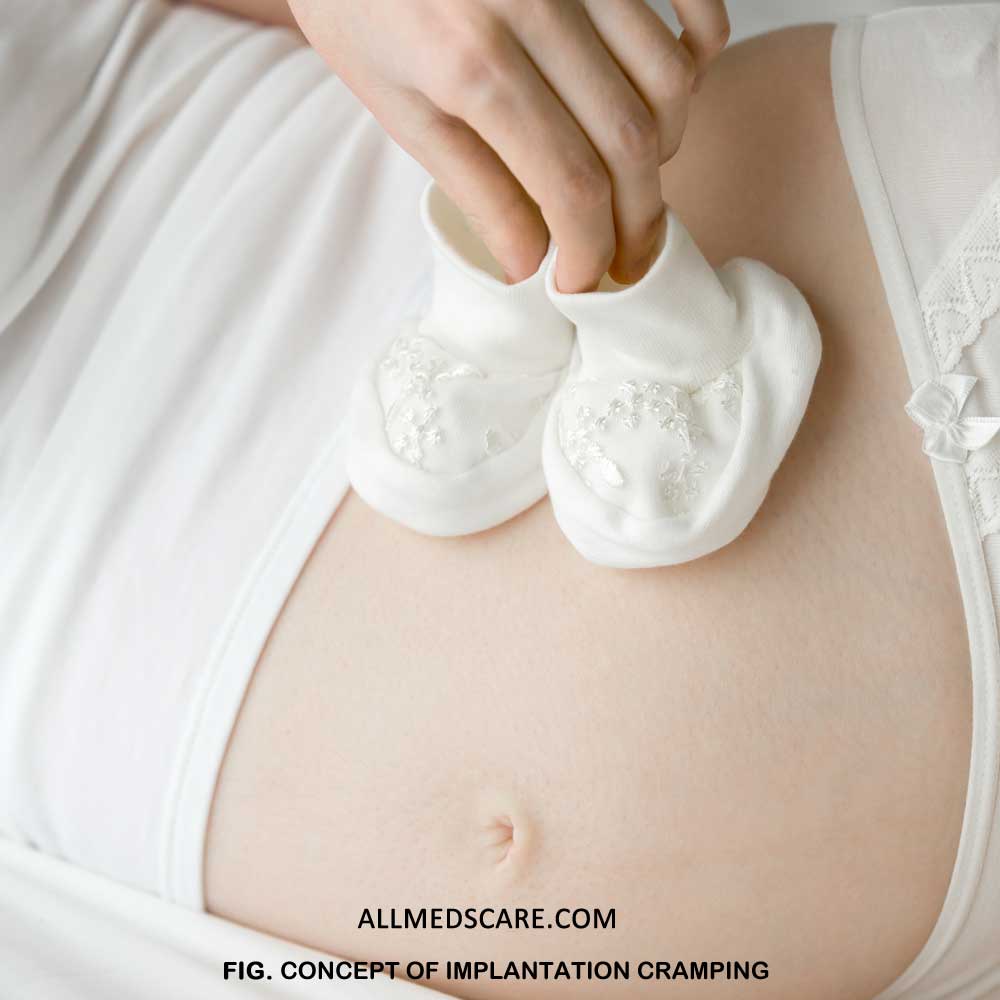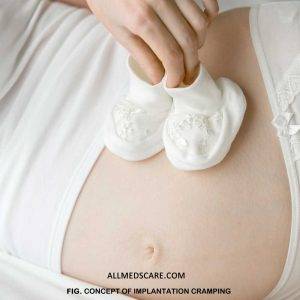
Know the Concept of Implantation Cramping
Implantation cramping is mild abdominal discomfort that some women may experience during early pregnancy when a fertilized egg attaches to the uterine lining.
In early pregnancy, implantation cramping is frequent. It describes mild to severe abdominal discomfort that develops as the fertilized egg attaches to the lining of the uterus. This discomfort often lasts from a few minutes to a few hours and can be more moderate or similar to menstrual cramps. Women should take note of any unusual symptoms that accompany cramps even if they are typically not bad enough to need medical treatment so they can report them to their doctor if necessary.
In this talk, we’ll delve deeper into the causes, symptoms, and management of implantation cramping, highlighting this natural and important phenomenon in a woman’s fertility journey.

The Duration of Implantation Cramping
The duration of implantation cramping can vary from woman to woman, but it usually lasts from a few minutes to several hours. The most common time for cramps to occur is around 6-12 days after conception. When this happens, the fertilized egg attaches to the lining of the uterus and causes some bleeding or mild abdominal pain. Some women experience more intense pain that lasts for a long time, while others experience only minor sensations that last for a short time.
Implantation cramps have many symptoms such as nausea, headache, fatigue, and breast tenderness. All these symptoms can be signs that you are pregnant. So it is important that you visit or consult your doctor if you experience any of these symptoms or need them. Also if you experience severe abdominal pain or bleeding along with your implantation cramping, contact your healthcare provider immediately as this may indicate an ectopic pregnancy or other medical condition that requires immediate attention.
Possible Causes of Implantation Cramps
- During the first trimester of pregnancy, implantation cramps are common, as the fertilized egg releases hormones and chemicals that cause minor abdominal pain or discomfort to the lining of the uterus. It occurs in the uterus and surrounding tissues that make room for the growing foetus.
- Hormonal shifts as well as increased blood flow to the uterus can also cause cramping.
- Some women may experience more severe implantation cramping when multiple embryos implant at once through assisted reproductive technology (ART) procedures such as IVF or IUI.
- A lifestyle change can also cause implantation cramping.
- Dehydration can cause muscle stress in some women which can lead to general aches and pains associated with implantation.
- Pregnant women who experience any kind of abdominal pain or discomfort related to their pregnancies should see a doctor right away for evaluation so that a proper diagnosis and treatment can be given, if necessary.
The Difference Between Implantation Cramps and Menstrual Cramps
What makes menstrual cramps different from implantation cramps, both of which can cause abdominal pain during pregnancy? Both types of cramping are painful and can last for several hours. However, they differ from each other by some key differences.
The main difference between menstrual cramps and implantation cramps is timing. Implantation usually occurs about 6-12 days after conception while menstruation usually occurs 14 days or after ovulation. Because of the timing difference, any pain felt before the missed period can be relieved by implantation rather than by menstruation. In addition, implantation bleeding is much lighter and less regular than regular periods, but menstrual bleeding often accompanies this pain.
Many women report that implantation tends to be milder than their normal periods while still being able to distinguish it from other typical aches and pains they experience throughout their day-to-day lives. However, the intensity of the discomfort felt with each type of pain also varies greatly among women. Menstrual cramps are known to be more intense than other pain symptoms experienced during this time of the month. They cause a throbbing sensation that is localized either in the lower abdomen or back area, depending on individual sensitivity levels and location preference.
Most important thing!
Both types of cramping can be signs of something more serious, such as an infection that needs immediate medical attention if left untreated, so it’s important for women who are or think they are pregnant to keep track of any changes in their abdominal discomfort. If required, you can talk to your doctor about it. If you’re ever unsure whether your pain is the result of certain hormonal fluctuations that occur during early pregnancy or if it’s something else entirely that requires further investigation by your healthcare provider as soon as possible, knowing how your body reacts during the different stages is important. gives Help determine what type of pain you are experiencing!
Tips for Relief and Comfort from implantation cramping
If you are experiencing discomfort from implantation cramping, there are a few things that can help provide some relief and comfort.
- Drinking plenty of water: Make sure you stay hydrated by drinking plenty of water throughout the day. Some women experience muscle tension due to dehydration, which can cause a variety of aches and pains, including implantation cramps. Also, getting enough sleep is equally important as fatigue can make people feel more sensitive or restless during this time.
- Warm bath: Using heat or having a warm bath may help reduce stress levels, which may be making your cramps worse, as well as any pain or suffering they may be causing. Different people have variant approach while handling situations, so experiment until you find something that is specifically custom made just right for their own needs here! You could even try using an ice pack on your abdomen if needed since this might provide similar benefits depending on what feels best for you personally at any given moment.
- Medications: Over-the-counter drugs like ibuprofen (Advil) or acetaminophen (Tylenol) from an approved pharmacy may help relieve mild abdominal pain associated with implantation cramping. It is best to consult the doctor before taking anything new, especially in pregnancy, just in case there is a potential risk that isn’t immediately obvious due to allergies, intolerances, etc. Please also remember to double-check beforehand whenever possible.






